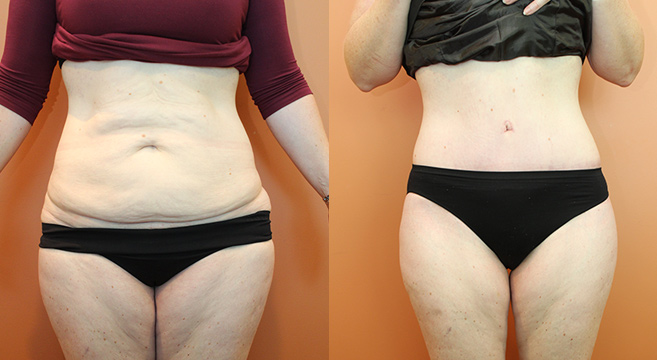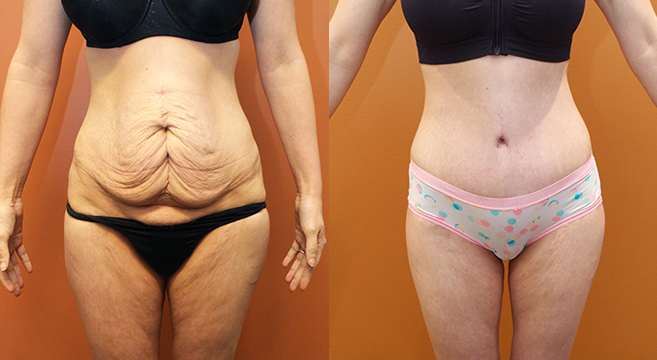Body Lift Recovery Sleep
If you’re considering body lift (Body Lipectomy) surgery, you might be wondering about post-operative sleep, given the procedure’s complexity and extensive impact on your body. Sleep is key to healing and getting the best results from your cosmetic surgery.
Sydney Specialist Plastic Surgeon Dr Jake Lim has guided many patients through body lift (Body Lipectomy) recovery. Here are his recommendations for better sleep after the procedure.
Download Dr Lim’s Excess Skin Surgery Guide

What Is Body Lift Surgery?
But before we get to the sleeping tips, let’s quickly go over what a body lift (Body Lipectomy) is. A body lift is a surgical procedure to remove excess skin and fat, tighten muscles and reshape various parts of the body such as the abdomen, thighs, buttocks and arms. This surgery is often sought by people who have had significant weight loss or those who want to address age related changes. The recovery period after a body lift (Body Lipectomy) is several weeks and proper care and rest is important for optimal healing.
Why Sleep is Important for Recovery
Sleep is a part of the healing process after body lift surgery. During this time your body goes through a series of complex processes to repair tissues and reduce inflammation. When you sleep your body is in a state of deep relaxation and can focus its energy on healing and regeneration.
One of the benefits of sleep during recovery is the release of growth hormones. These hormones are important for tissue repair and regeneration and help your incisions heal faster and better. When you sleep your body produces more growth hormones especially during the deep stages of sleep. This increased production of growth hormones speeds up the healing process and forms new healthy tissue and reduces scarring.
In addition to tissue repair, sleep also helps with pain and inflammation after surgery. During sleep your body produces natural pain relieving substances called endorphins. These endorphins reduce pain and discomfort so you can rest and recover better. Also adequate sleep reduces inflammation in the body. Inflammation is a natural response to surgical trauma but excessive inflammation can slow down the healing process and increase pain and swelling. By sleeping well you regulate the inflammatory response and your body can heal better.
On the other hand poor sleep can have negative effects on your recovery. When you don’t sleep well your body can’t repair itself properly and healing takes longer and potentially compromises your surgical results. Lack of sleep can also worsen pain and discomfort as your body can’t produce enough endorphins to manage pain naturally. This can lead to increased use of pain medication which can have side effects and disrupt your sleep cycle further.
Also sleep deprivation can weaken your immune system and make you more prone to infections and complications during recovery. A strong immune system is important to fight off potential infections and optimal healing. When you don’t sleep well your immune system won’t function at its best and you’re more likely to get an infection at your surgical sites or experience other health issues that can prolong your recovery.
To get the restorative sleep your body needs during recovery make sure to prioritise good sleep habits. Aim for 7-9 hours of sleep per night and try to maintain a consistent sleep schedule. Create a bedtime routine that helps you wind down and prepare for sleep such as taking a warm bath, reading a book or doing some gentle stretches. Avoid screens (e.g. smartphones, tablets, televisions) at least an hour before bedtime as the blue light from these devices can disrupt your natural sleep wake cycle.
If you’re having trouble sleeping due to discomfort or pain don’t hesitate to talk to Dr Jake Lim or his team. They can give you personalised advice and guidance to help you manage your symptoms and improve your sleep. In some cases they may adjust your pain management plan or recommend additional strategies to help you sleep better.
You should know that sleeping during your recovery is not a luxury – it’s a necessity. By giving your body the rest it needs you’ll be supporting the healing process, reducing your risk of complications and ultimately get the best results from your body lift surgery.

Preparing Your Sleep Environment
A comfortable and supportive sleep environment is important for sleeping well after body lift surgery. Your sleep space should be a peaceful sanctuary that helps you relax and support your body’s healing. By taking the time to prepare your bedroom you’ll be setting yourself up for a more comfortable and successful recovery.
One of the most important part of your sleep environment is your bed. Invest in a good quality mattress that has the right balance of comfort and support. A mattress that is too soft may not provide enough support for your surgical sites while one that is too firm may put too much pressure on your body and cause discomfort. Consider a medium firm mattress that conforms to your body shape while still providing enough support especially for the areas where you had surgery.
Also don’t forget to choose your pillows wisely. Select pillows that provide the right level of support for your head, neck and any other areas that need to be elevated during sleep. Memory foam or adjustable pillows can be very helpful as they mould to your body shape and alleviate pressure points. If you need to sleep with your upper body elevated consider using a wedge pillow or stacking multiple pillows to create a gentle slope. This can help reduce swelling and promote circulation.
Your bedding choices also contribute to your sleep environment. Choose soft breathable fabrics that feel gentle on your skin and allow for good air circulation. Natural materials like cotton or bamboo are often preferred as they are light and help regulate body temperature. Avoid rough or irritating fabrics that may rub against your incisions and cause discomfort. Keep your bedding clean and fresh by washing it in hypoallergenic detergent regularly to prevent irritation and reduce the risk of infection.
The overall atmosphere of your bedroom is another consideration. Try to create a sleep space that is cool, dark and quiet. A slightly cool room temperature around 15-19°C is ideal for sleep. If needed use a fan or aircon to maintain a comfortable temperature. Darkness is also important for sleep as it helps regulate your body’s natural sleep wake cycle. Install blackout curtains or use a sleep mask to block out any unwanted light. If you’re sensitive to noise consider using earplugs or a white noise machine to mask out any noise.
To add to the relaxing ambiance of your sleep environment consider adding soft lighting, calming scents or gentle music. A bedside lamp with warm and dim light can create a cozy atmosphere that helps you relax. Aromatherapy using essential oils like lavender or chamomile can reduce stress and promote calmness. Soft instrumental music or nature sounds can also help you fall asleep and mask out external noise.
Make sure to keep your sleep environment tidy and organised. A cluttered or messy bedroom can contribute to stress and anxiety and make it harder to relax and sleep. Keep your bedside table clear of unnecessary items and make sure you have easy access to anything you may need during the night like water, pain medication or a phone to call Dr Jake Lim’s office in case of emergency.

Sleeping Positions and Techniques
Finding the most comfortable and supportive sleeping position after your body lift surgery is key to healing and reducing discomfort. Dr Jake Lim will give you personalised advice based on the areas treated during your procedure but here are some general tips to help you sleep better:
Most of the time you should sleep on your back with your head and shoulders slightly elevated. This will help reduce swelling, take pressure off your incisions and promote circulation. To do this use several pillows to prop up your upper body and create a 30-45 degree angle. You can also place a pillow under your knees to take pressure off your lower back and overall comfort.
If you can’t sleep on your back or Dr Lim has advised you to sleep on your side there are ways to make this position more comfortable. Place a pillow between your legs to prevent your upper leg from pulling on your surgical sites and to maintain proper alignment of your hips and spine. You can also use pillows to support your arms and upper body to take pressure off your shoulders and chest.
When getting in and out of bed take your time and move slowly to avoid straining your incisions. Use your arms to support your body weight as you change positions instead of your core muscles which may be sore after surgery. If you are in pain or discomfort while sleeping try adjusting your pillows or using extra support to find a more comfortable position.
Gentle relaxation techniques like deep breathing or progressive muscle relaxation can also help you relax and fall asleep faster.
Sleep Hygiene and Lifestyle Tips
In addition to preparing your sleep environment and position good sleep hygiene and lifestyle habits can make a big difference to the quality of your sleep during recovery:
- Avoid stimulants like caffeine, nicotine and alcohol especially in the hours leading to bedtime as they can affect your sleep.
- Don’t eat heavy meals close to bedtime as they can cause discomfort and disrupt your sleep. If you feel hungry have light and easy to digest snacks instead.
- Do deep breathing exercises or meditation to calm your mind and body before sleep.
- Stay hydrated by drinking plenty of water throughout the day and eat a balanced diet to support your body’s healing process.
When to Contact Your Surgeon
While some discomfort and sleep disturbances are normal after body lift surgery some signs and symptoms may need medical attention. If you have severe pain, excessive swelling, redness or discharge from your incisions contact Dr Jake Lim’s office immediately. If you have a fever, difficulty breathing or any other symptoms of concern don’t hesitate to reach out. Attend your follow up appointments to monitor your progress and address any issues that may arise during your recovery.
FAQs about How to Sleep after Body Lift Surgery

Can I use a recliner or adjustable bed to sleep after my body lift surgery?
- Yes, a recliner or adjustable bed can be good for sleeping after body lift surgery. These types of beds allow you to adjust your sleeping position and maintain the recommended elevation of your upper body. Just make sure to discuss this with Dr Jake Lim to see if it’s suitable for your case.
How long do I need to sleep in an elevated position after my body lift?
- The duration of sleeping in an elevated position varies depending on the extent of your surgery and your individual healing progress. Typically, patients are advised to sleep with their upper body elevated for at least 2-4 weeks after surgery. Dr Lim will advise you on a more specific timeline for your case.
What if I roll onto my stomach while sleeping?
- Rolling onto your stomach while sleeping after body lift surgery is not recommended as it can put pressure on your incisions and cause discomfort. If you roll onto your stomach, gently reposition yourself onto your back or side as soon as you can. If you have pain or discomfort contact Dr Lim’s office for advice.
Are there specific pillows that can help me sleep more comfortably after surgery?
- Various types of pillows can be helpful after body lift surgery depending on your needs. A body pillow or U-shaped pillow can support and help you sleep on your back or side. Memory foam pillows can also be good as they mould to your body and alleviate pressure points.
Is it hard to sleep after body lift surgery?
- Yes, it’s normal to have some difficulty sleeping after body lift surgery due to discomfort, pain and adjusting to new sleeping positions. This is part of the recovery process and should get better as your body heals. If you find your sleep difficulties are persistent or affecting your recovery contact Dr Lim to discuss options such as adjusting your pain management or trying other relaxation techniques.
Further Reading about Body Lift Surgery with Dr Jake Lim
- Read Dr Jake Lim’s Blog about Body Lift Procedure in Stages
- Read Dr Jake Lim’s Blog about Advanced Techniques in Body Lift – Truncoplasty Surgery
- Read Dr Jake Lim’s Blog about What is 360 Body Lift Surgery?
- Read Dr Jake Lim’s Blog about How to Reduce Bruising and Swelling after Body Lift – Truncoplasty Surgery
- Read Dr Jake Lim’s Blog about Minimise Scars after Body Lift Surgery




